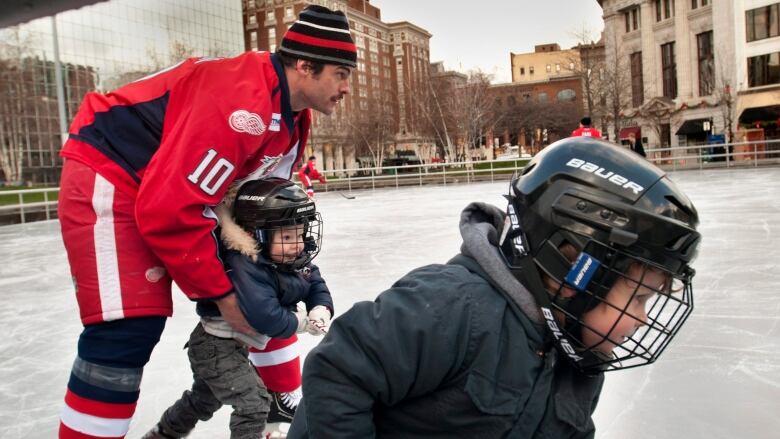Pushy parents should let children motivate themselves into sport, researcher says
Researcher Meredith Rocchi on CBC Radio's Ottawa Morning to explain why children need own motivation

With hockey season on the way, a sports motivation researcher is asking pushy parents to ease up on pressuring their children.
Kids who motivate themselves tend to be more successful intheir chosen sports in the longer term, saysMeredith Rocchi, a University of Ottawa PhD candidate.
But not all motivation is bad, Rocchi says.
"Ultimately, it's important with your young athletes whether it's in hockey or any sport to really focus on what they want to do," she said.
"As they get older and start to develop their own sense of identity, they're going to start to decide what they want to do and how they do it. And if they've been pushed for too long into something they don't want to do, they could be susceptible to burnout or other negative outcomes like that."
Rocchi also said parents should strive for something called "autonomy support," which essentially allows children the space to decide what they want to do, when they want to do it and how they want to do it.
Some tips?
- Make specific decisions with children, such as whichhockey camp they want to attend, if they want to attend one at all.
- Let children set their own alarms to wake up for practiceinstead of forcing them out of bed yourself.
- Promote developing skills instead of achieving results. For example, ask yourchildrenabout theirskating power andblocking effectivenessinstead of how many goals they scored or whether their team won or lost.
- Don't speak negatively to children about referee calls, other players andcoaches. Stay positive.
- Don't let the actions and decisions of other parents and their children dictate your own. Let your child set the terms with you.












_(720p).jpg)


 OFFICIAL HD MUSIC VIDEO.jpg)
.jpg)



























































































